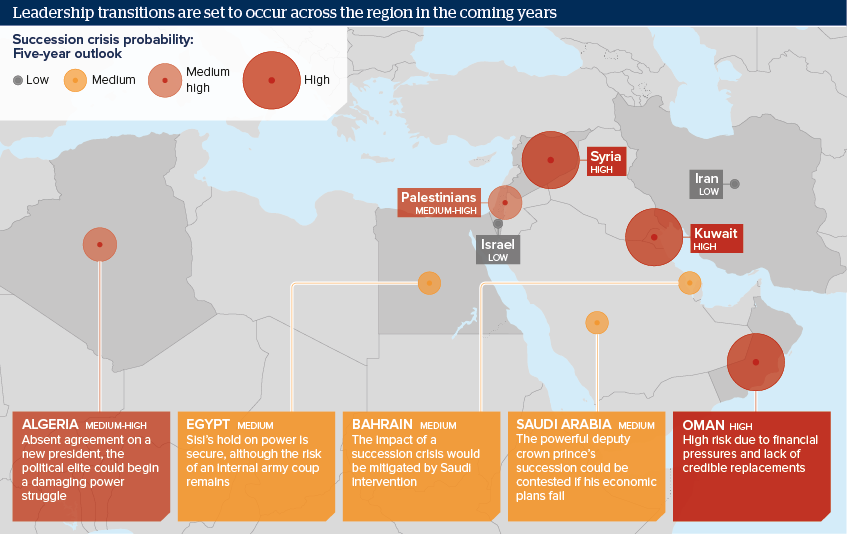Succession crisis risk is rising in the Middle East
The nature of the region's governments makes them highly vulnerable to crisis during power handovers

Source: Oxford Analytica
Outlook
Power transitions in the Middle East carry a higher risk of instability than elsewhere in the world due to the region's highly personalised style of government.
A leader's departure threatens the survival of the patronage networks that have grown up around him. This means that instability can occur in both republics and monarchies as rival factions compete to ensure a successor that will best protect their interests.
This was a significant driver of the crises that followed the removal of leaders in Libya, Yemen, Egypt and Tunisia in 2011. Succession politics are also a significant factor in domestic political tensions in Algeria, Bahrain, Kuwait and Saudi Arabia.
Impacts
- Absence of a clear successor clouds stability prospects in Algeria, Syria and Oman.
- In a low oil environment, new leaders will find it more difficult to build their legitimacy and buy off political opposition.
- They are likely to face increased public scrutiny and calls for more representative and accountable government.
- A dispute over the succession to Iran's Supreme Leader Ali Khamenei is unlikely; but could be deeply destabilising in Iran and the region.
- The removal of Syria's President Bashar al-Assad could create a power vacuum.